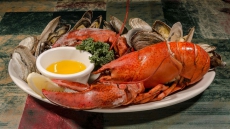Preventing weight gain, obesity and diabetes could be as simple as keeping a nuclear receptor from being activated in a small part of the brain, says a new study.
In lab experiments, when researchers blocked the effects of the nuclear receptor "PPARgamma" in a particular area of the brain in mice, they ate less and became resistant to a high-fat diet.
"These animals ate fat and sugar, and did not gain weight, while mice in the control group gained weight on the same diet," said lead author Sabrina Diano, a professor in department of obstetrics at Yale School of Medicine.
We showed that the PPARgamma receptor in neurons could control responses to a high-fat diet without resulting in obesity, Diano added.
PPARgamma regulates the activation of the POMC neurons found in the hypothalamus and regulate food intake.
Once activated, these neurons cause a feeling of fullness and curb excessive eating.
The findings also have significant bearings on the treatment of diabetes.
PPARgamma is a target of thiazolidinedione (TZD), a class of drugs used to treat type-2 diabetes that lowers blood-glucose levels but patients gain weight on these medications.
"Our study suggests that the increased weight gain in diabetic patients treated with TZD could be due to the effect of this drug in the brain. Therefore, targeting peripheral PPARgamma to treat type-2 diabetes should be done by developing TZD compounds that cannot penetrate the brain," Diano said.
The study appeared in the Journal of Clinical Investigation (JCI).





